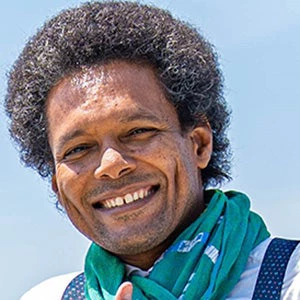
“The empowerment of young people and women lies at the heart of our organization,” declares Fatouma Harber — human rights activist, teacher, blogger and CEO of SankoréLabs. SankoréLabs is an incubator that also provides training and co-working spaces to young entrepreneurs in Timbuktu in northern Mali. Named for the city’s world-renowned historical university and 14th century mosque, SankoréLabs provides aspiring entrepreneurs with support and a space to work. Along with meeting incubees’ IT, internet and networking needs, the incubator is also a vehicle to promote better local governance and enhance citizen engagement in a region that desperately needs both.
The only such organization in the region, SankoréLabs has developed a reputation for supporting local social and economic development, enjoying the support of international organizations like UNESCO and Internet Without Borders. The incubator is also, along with other Francophone African incubators, part of the French Agency for Development’s Afric’innov network , whose steering committee includes the World Bank Group among other donors.
Despite the 2015 peace agreement, the security situation in northern Mali remains fragile — fueling a climate of fear and violence in communities. Refusing to give in to intimidation during the armed Islamist occupation of Timbuktu, Harber began documenting and speaking out against human rights abuses against civilians by armed groups, particularly violence against women, in a blog in 2012.
In the face of death threats against her and her family, Harber continued blogging and demanding justice for the victims of violence in northern Mali, as well as establishing the Doniblog collective of Malian bloggers who write about democracy and freedom of expression. She was also behind the #Mali100Mega Movement in Mali’s tech and communications sectors to advocate for faster and cheaper access to Internet in Mali and most recently, Harber founded the Yermatoun NGO to empower young people in Timbuktu and encourage them to engage in democratic initiatives and demand accountability from government.
Referring specifically to Timbuktu, she also points to the local impacts entrepreneurship can have. “We believe that entrepreneurship and professional training are the best tools in the fight against radicalization and migration.” Adding to this, she urges “let young people serve their communities and country while earning a living in the ways that interest them the most.”
Once off the ground, SankoréLabs gained broad public support across civil society by organizing meetings with local leaders and establishing a network of over one hundred civil society organizations (CSOs). As an older woman in her community, Harber felt it was easier to generate support for her initiative. “Generally, people trust women more here,” she attests.
Operating in northern Mali, however, is not straightforward, even with local support. “Our challenges stem from where we operate,” admits Harber. Not only does Timbuktu and the region suffer from poor infrastructure, effectively cutting it off from the rest of the country, the recent emergence of bandits along the few existing routes has only exacerbated the situation. Poor Internet and telecommunications services in particular have not only limited the services SankoréLabs can offer, they have occasionally blocked some of their digital projects to boot.
Nevertheless, Harber carries on in the face of adversity. She is especially proud of SankoréLabs incubee Guett Technologie, a photovoltaics start-up that today collaborates with a solar panel company to convert sunlight into electricity in all the northern regions of Mali. “We’re very proud of the work we’ve done and we believe the State and donors should take a similar approach — supporting young entrepreneurs, organizing competitions and capacity-building for them, as well as highlighting these success stories and giving young people leadership roles in their own sectors.”

Though women in Mali are very present in the private sector already, their capacity tends to be limited to subsistence activities. Lacking the means to expand their businesses, women are often relegated to micro-businesses and market gardening. Indeed, as the African Development Bank’s African Gender Equality Index 2015 noted, just 15% of formal SMEs have a woman as the managing director.
“African women’s progress is often impeded by social expectations, particularly family obligation and enduring discrimination against women,” Harber notes.
This is why SankoréLabs has prioritized and facilitated female participation in its programs. “It’s up to people like me to show women that they can operate in this sector and succeed. Yes, there’s discrimination but that shouldn’t stop women from taking advantage of opportunities to develop their activities and show their business to the world.”
“Confidence is everything in entrepreneurship,” she concludes. “Be it women or young people — it’s a question of determination and I’m delighted that so many Malians are launching themselves into entrepreneurship and succeeding.”



Join the Conversation